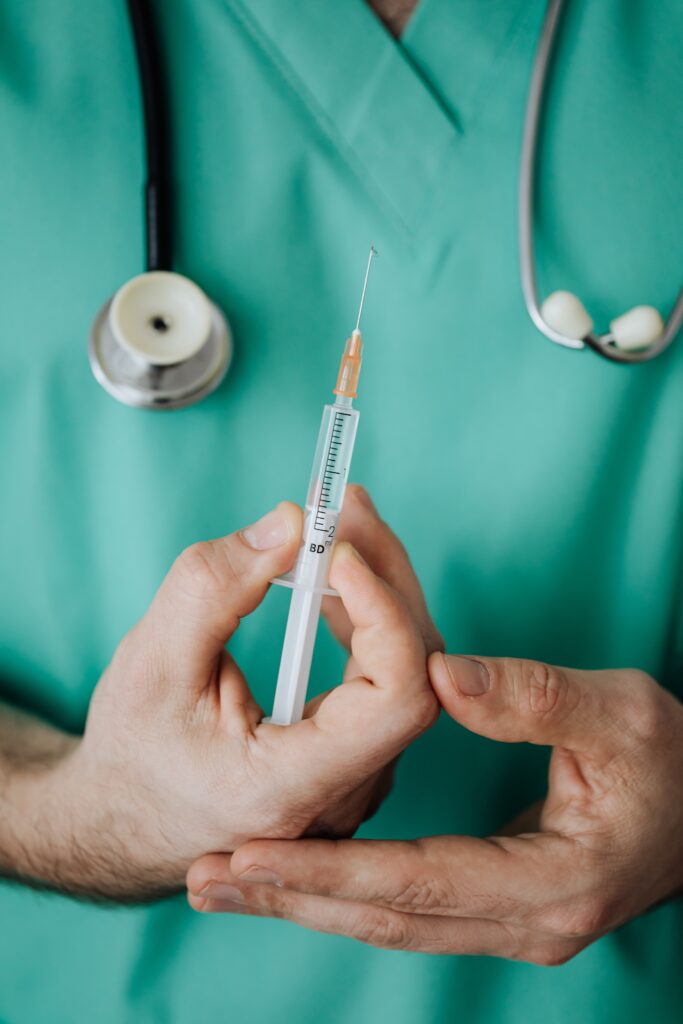In a landmark development, the R21/Matrix-M malaria vaccine, a collaborative effort between the University of Oxford and the Serum Institute of India, with the support of Novavax’s adjuvant technology, has received a strong recommendation from the World Health Organization (WHO). This endorsement comes after rigorous assessments of safety, quality, and effectiveness, marking a significant step forward in the battle against malaria.

The WHO’s Stamp of Approval to the Malaria Vaccine
After an extensive scientific evaluation conducted by the WHO’s independent advisory bodies, the Strategic Advisory Group of Experts (SAGE) and the Malaria Policy Advisory Group (MPAG), the R21/Matrix-M malaria vaccine has been given the green light for use. The Serum Institute of India issued a statement celebrating this crucial milestone. With the WHO’s approval and recommendation, the next phase will likely involve additional regulatory approvals, paving the way for wider distribution of the R21/Matrix-M vaccine, possibly as early as next year.
Ramping Up Production for Widespread Impact
The Serum Institute has already established the capacity to produce 100 million vaccine doses annually, a capacity that will be doubled over the next two years. This scale of production is of utmost importance as it will facilitate the vaccination of individuals at high risk of malaria, playing a pivotal role in curbing the spread of the disease while providing protection to those vaccinated.
Matrix-M Adjuvant Technology
A critical component of this vaccine is the Matrix-M adjuvant, a proprietary saponin-based adjuvant developed by Novavax. The Serum Institute holds the license for its use in endemic countries, while Novavax retains commercial rights in non-endemic regions.
Collaborative Efforts for Success
The vaccine was jointly developed by the Jenner Institute at Oxford University and the Serum Institute of India, with substantial support from the European and Developing Countries Clinical Trials Partnership (EDCTP), the Wellcome Trust, and the European Investment Bank (EIB).
Current Use and Impact
As of now, the R21/Matrix-M malaria vaccine has received licenses for use in Ghana, Nigeria, and Burkina Faso, marking a significant stride in the fight against malaria.
High Efficacy and Phase III Trials
The WHO’s recommendation is grounded in pre-clinical and clinical trial data that showcased excellent safety and high efficacy in four countries, including areas with both seasonal and perennial malaria transmission. This achievement makes it the world’s second WHO-recommended vaccine for preventing malaria in children.
The vaccine’s Phase III clinical trial, which involved 4,800 children across Burkina Faso, Kenya, Mali, and Tanzania, recently reached its primary one-year endpoint. Funded primarily by the Serum Institute of India, with Oxford University as the regulatory sponsor, the Phase III trial results are currently undergoing peer review before publication.
Impressive Results and Future Outlook
The vaccine demonstrated a 75% efficacy over 12 months at sites with high seasonal malaria transmission and 68% efficacy at sites with more perennial transmission, using standard age-based administration. Although there was a slight decrease in efficacy over the first year of follow-up at both types of transmission sites, a booster dose successfully restored efficacy at the seasonal sites, with a remarkable vaccine efficacy of 74% over 18 months.
Adar Poonawalla, CEO of the Serum Institute of India, expressed his commitment to scaling up vaccine production to ensure accessibility for those in need.
John C. Jacobs, president and CEO of Novavax, highlighted the potential of this vaccine to accelerate and broaden access to a safe and effective tool in the fight against malaria, a disease that disproportionately affects children.
This WHO recommendation represents a significant stride in the global effort to combat malaria and brings hope for a brighter and healthier future for countless individuals in malaria-endemic regions.
OTHER POSTS:
- 2023 JioMart’s Mega Surprise: Cricket Legend MS Dhoni Joins as Brand Ambassador!”
- Indian Air Force Day 2023: A Celebration of Valor and Heritage
- PAK vs HK Asian Games Dream 11 Prediction: Crafting Your Winning Dream 11 Team, Pitch Insights, and Expected Lineups
- WHO Recommends Oxford-Serum Institute Malaria Vaccine: 2023 A Potential Game-Changer in the Fight Against Malaria
- Unmissable Investment Opportunities: Hot Stocks and Major Market Moves on October 3, 2023! Don’t Miss Out!
